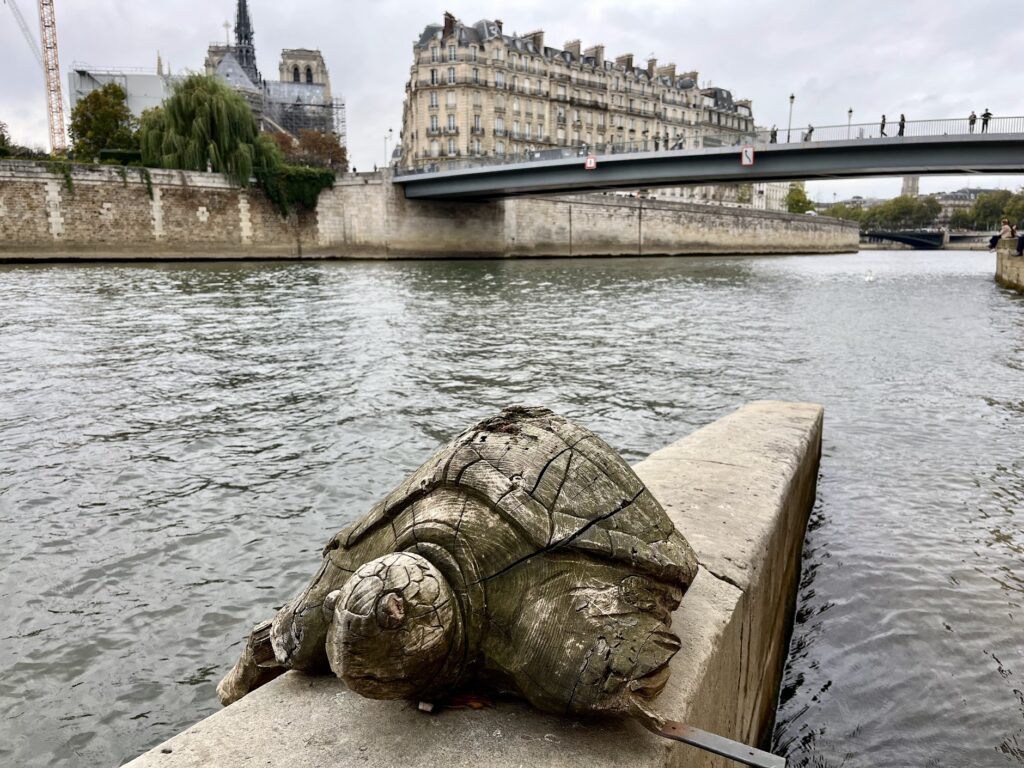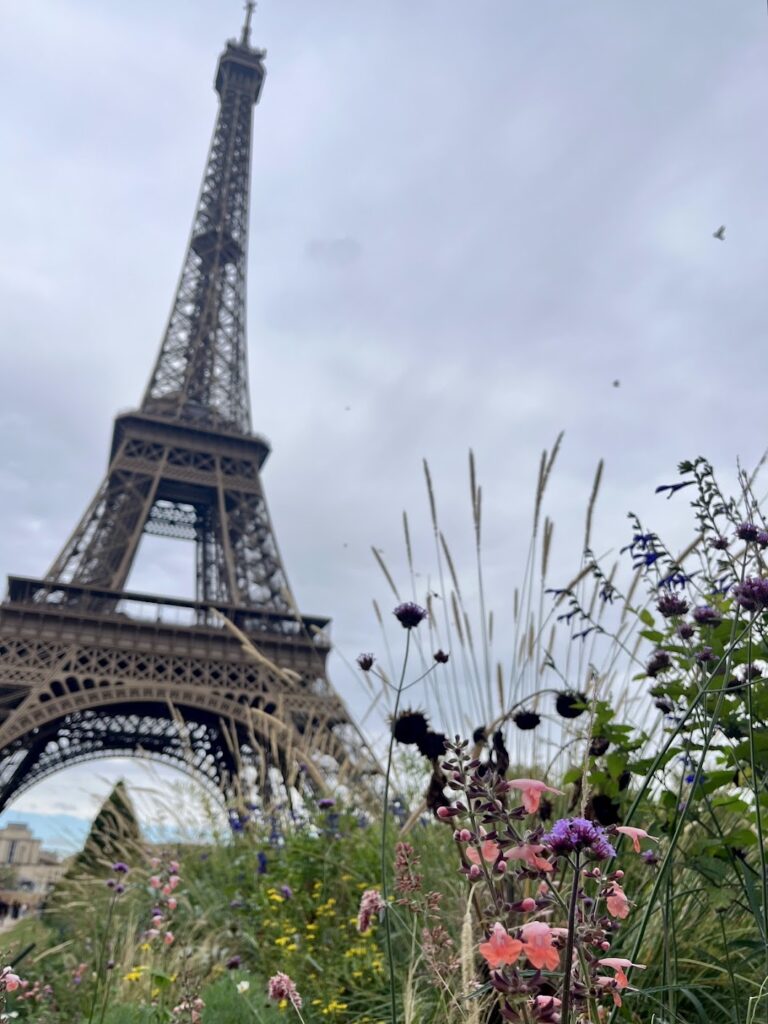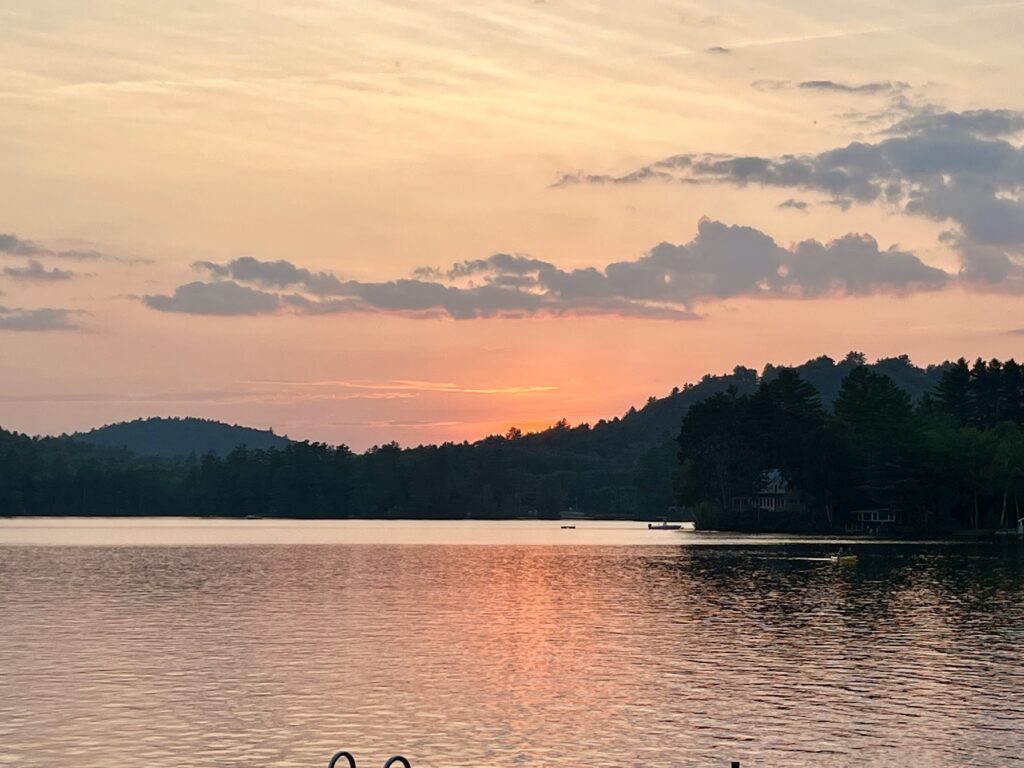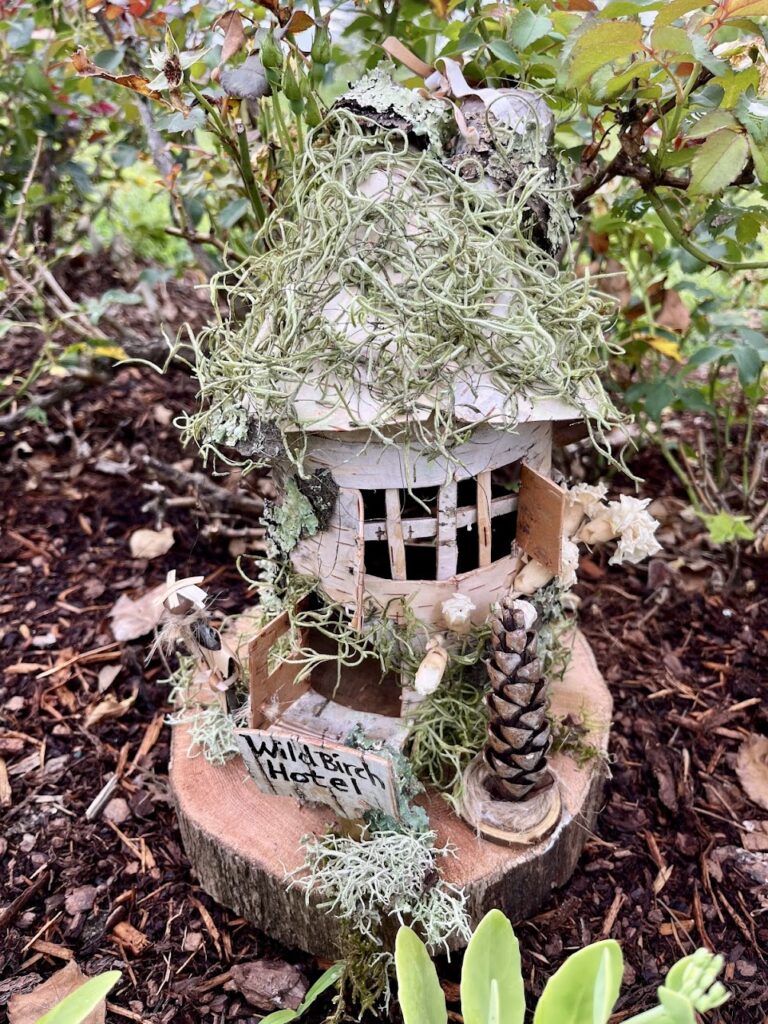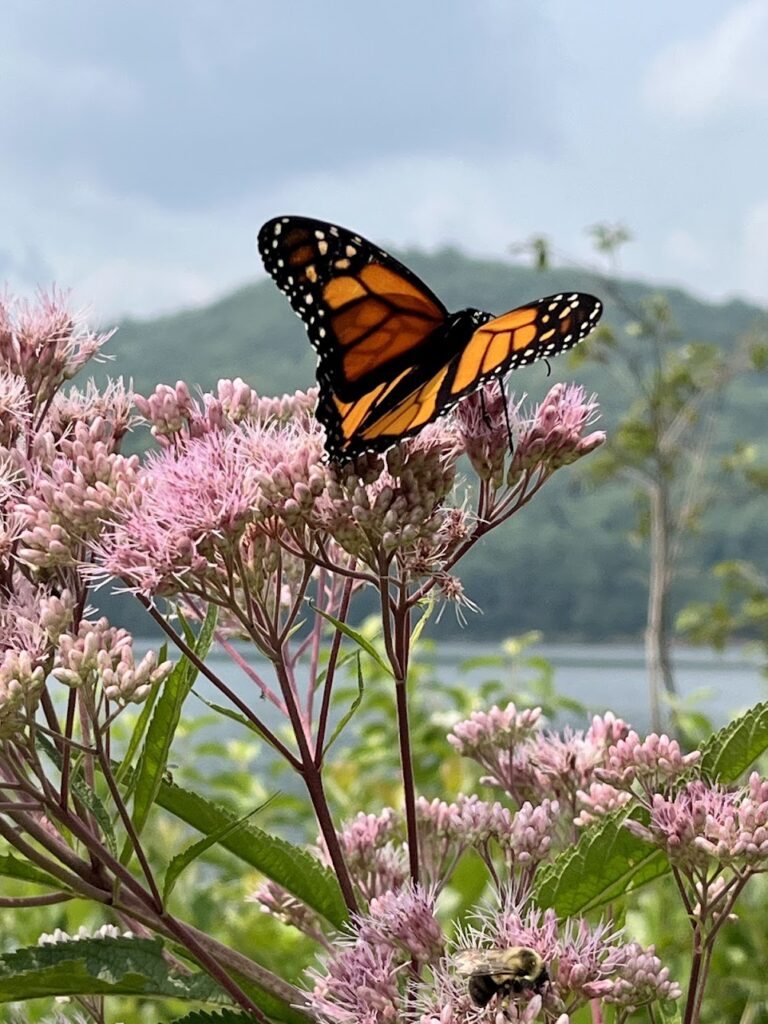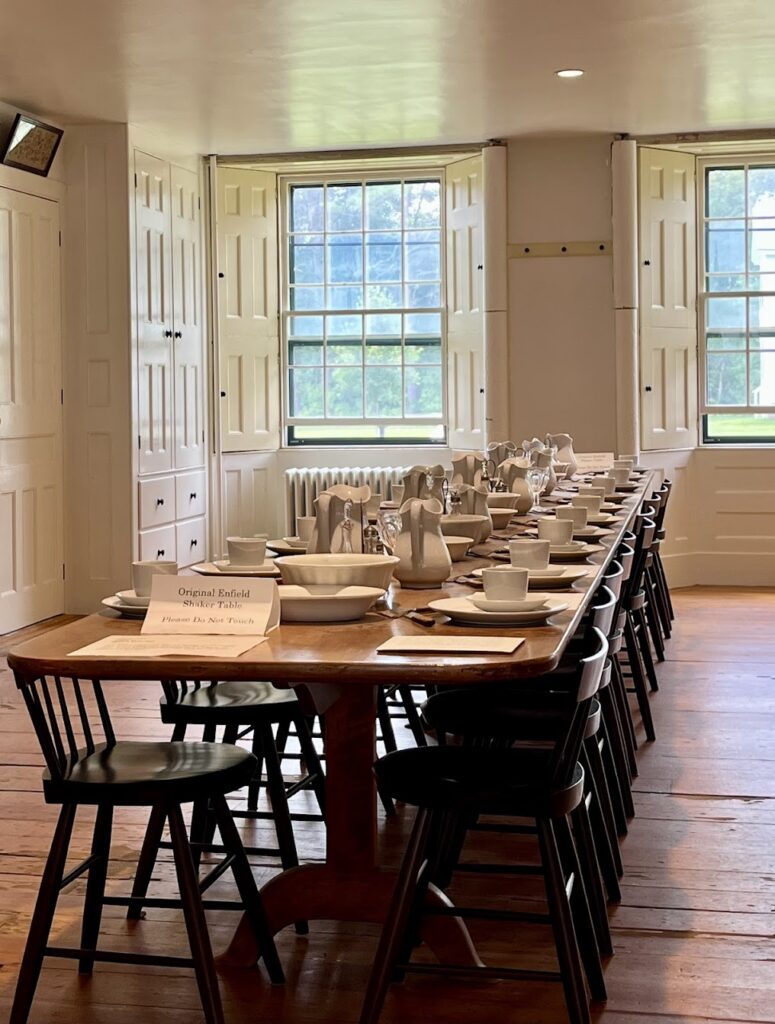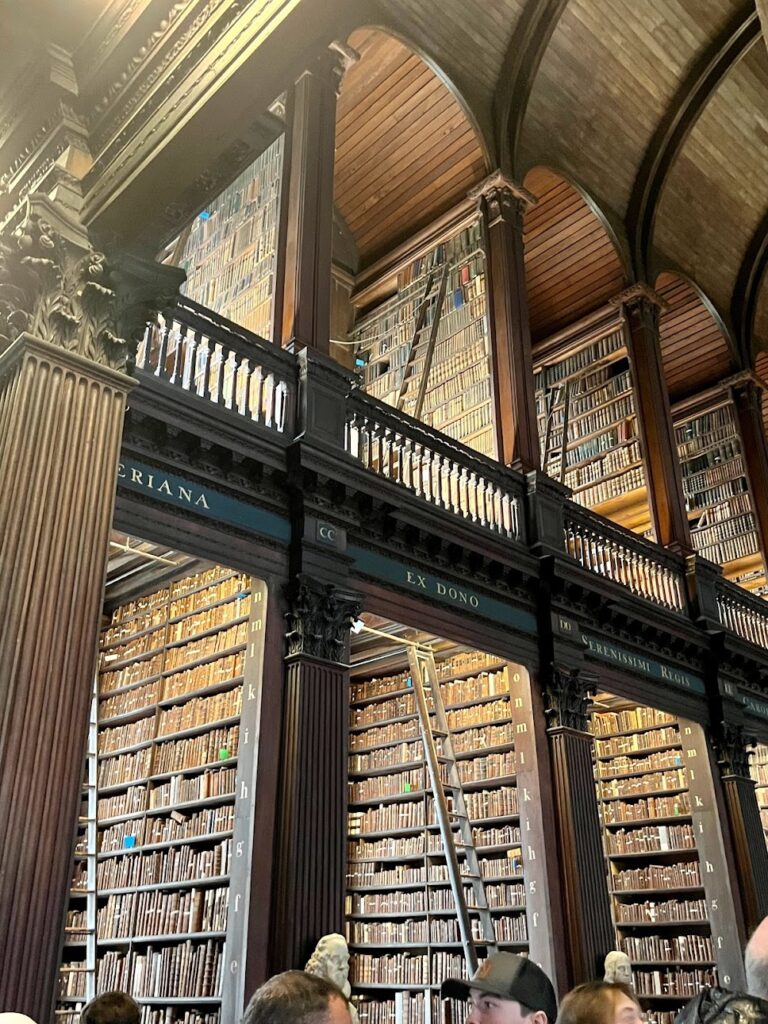This Week’s Bit of String: Notre Dame towers and a dog called Unity
Last weekend, we were in Paris. It was a wild idea, the trip planned in less than a fortnight. From 3:00 Saturday morning, when we woke up to shower and catch a flight from Bristol to Paris CDG, until 10:15 Sunday night when we fell into bed back in our own home, we walked 54,000 steps. We stayed Saturday night in a tiny hotel room in the 14th Arondissement, but the bed was comfortable, we had climate control, and there was a full Parisian breakfast included.
We had a bittersweet reason for this enjoyable adventure. When my aunt Laurel died a couple weeks ago, one of my cousins already had a trip booked to Paris. Laurel and my cousin were great Francophiles, so the family was inspired to send some of her ashes over and scatter them in the Seine. I couldn’t be at the full funeral in Vermont–busy though the weekend in Paris was, it didn’t shatter me the way a whirlwind cross-Atlantic trip with a minimum of 16 hours travel each way would have done–I could be part of this goodbye without missing work.
My cousin chose a spot across from Notre Dame’s dome, where we could walk down a cobbled ramp to the river. We found as we approached that as well as a cathedral view, we would be leaving my aunt alongside a weathered wooden statue of a turtle bracketed onto the stone wall, quite fitting as she’d had a beloved pet turtle for decades.
She loved dogs too, and soon after we’d poured her ashes into the river, a dog came bounding in, bucking jubilantly, snapping at her own splashes. Her French owner told us the dog’s name was Unity, and we did feel a strange synthesis at the resting place.
I was happy with this sendoff for Laurel, but my heart aches that all the life erupting around her in this location will never know her or her story. I wonder what other remnants of lives we step over all the time, and what unimaginable events will unfold later.
Interlocking Stories
Paris is particularly suited to such wonderings, with its many plaques honouring students and others who were killed in the Resistance against Nazi occupiers, and other signs memorialising Jewish families that were deported. Behind Notre Dame, there’s the Memorial to the Martyrs of the Deportation, which I researched for part of a story I wrote in January. The main character spent time in Paris and met his fiance, changing his life.
I certainly didn’t imagine I’d be visiting Paris later, and scattering my aunt’s ashes across the Seine from the same Memorial. Once again, there’s a strange unity of past and present, fiction and nonfiction. As Julia Ormond says in the 1990s remake of Sabrina, one of my aunt’s “Chicken Soup Movies” which she believed had restorative powers: “Paris is always a good idea.”

I’d actually forgotten about the story I wrote in January, with its Paris turning point, until my cousin told me where we’d take our aunt’s ashes. The story needs a lot of work. I wrote it during my January short story binge, when I slapped whatever idea I had onto paper: new ones, old and previously rejected ones, half-dreamed ones.
Since then, I’ve had a couple short stories I’ve worked hard at polishing, and I’ve started a new novel while still working on the final edits to my book about Eve and Creation. These projects are still keeping me pretty busy alongside my day job and everything else, so the fictional Paris encounter will probably wait a long while.
Ideas to Remember
It’s not possible to remember every idea or story, good or bad. So just because one thing has to wait doesn’t mean it will never get its time. When it comes to assessing our creative choices–and our life choices, really–there are so many possibilities that it seems unfair to judge one as entirely bad or good.
While I’m making up a new novel, I haven’t decided yet whose voice to lead with out of my new characters, and I keep switching. Would 5 points-of-view be too many? Yes, I know. But I decided while making myself write just four days after Laurel’s death, my work-in-progress wasn’t fun enough. So I pried its bars loose, and went back to page 2 to introduce an entirely new character, outside the pages of development I’d explored and planned in the pre-drafting stages.
Have you ever felt the need to do such a thing? Did it work?
My middle-class protagonists who take themselves somewhat seriously needed a foil, or maybe that was just me. Either way, I’ll see what comes of having someone else in the mix. A story undergoes so much evolution and so many rewrites, most ideas turn out to contribute something worthwhile.
I wouldn’t usually slide in an extra character, but it’s earlyish still, and who’s to stop me? In real life, there are people who appear out of nowhere and brighten everything.
I wouldn’t usually spend a middle-of-the-term weekend gallivanting around Paris, either. I don’t know if Paris, is, in fact, always a good idea, but it worked for us this time. And there’s a lot more we’d like to see. Strange to think I now have a bit of my aunt on this side of the ocean, over the Channel. Wondrous to imagine the places and people we have yet to be part of.
